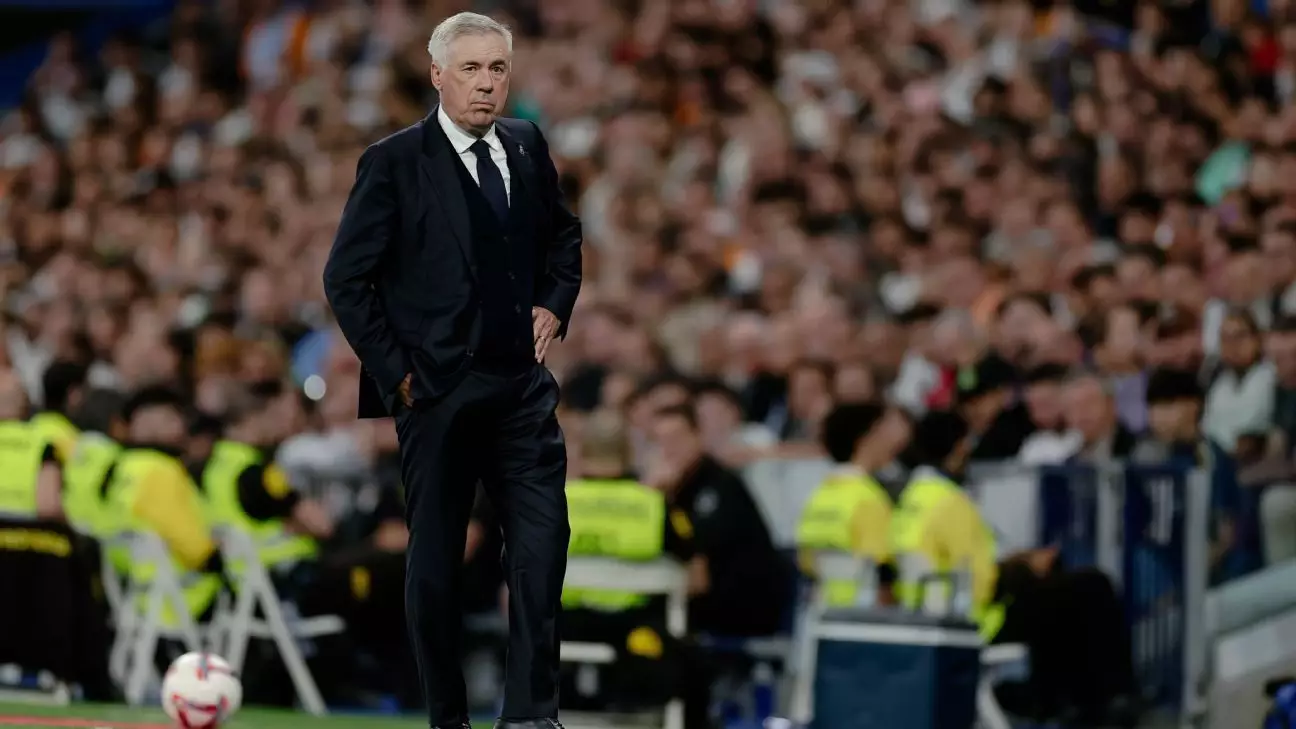The recent catastrophic flash floods in Valencia, which tragically claimed the lives of at least 217 individuals, have sparked a significant debate about the role of professional sports in society during times of national mourning. The event marked one of the most devastating natural disasters in contemporary Spanish history, leading to immense destruction of homes and significant disruption of transport networks. In this context, the question arises: should football, often seen as a unifying force and source of entertainment, continue to be played during such moments of tragedy?
Football clubs, including giants like Real Madrid, are deeply intertwined within the fabric of their communities. With the news of the floods, Real Madrid’s coach, Carlo Ancelotti, didn’t mince words; he suggested that all football activities in Spain should come to a halt in light of the calamity. The postponement of the La Liga match between Real Madrid and Valencia, and the match between Villarreal and Rayo Vallecano underscored a moment of reflection meant not only for the players and fans but for society as a whole. However, the continuation of eight other top-flight matches raised eyebrows and questions about the priorities of football authorities.
Football as a Reflection of Society’s Ambivalence
The contrasting decisions to proceed with certain games while halting others reveal a profound ambivalence within the realm of professional sports during crises. While La Liga’s collaboration with the Red Cross aims to support the victims by raising funds and providing assistance, the act of playing matches raises ethical concerns. Ancelotti poignantly noted that discussing football feels trivial in the midst of such devastation. His remarks resonate with the notion that, regardless of the profession, human compassion and societal responsibility ought to take precedence over business as usual.
Diego Simeone, the coach of Atlético Madrid, echoed similar sentiments, indicating that the decision to continue games under the current conditions was illogical. This broad consensus among coaches suggests a deeper understanding of the emotional state of players, staff, and fans alike. Football, while seemingly a source of joy, can turn to insignificance when confronted with such profound suffering. The implication here is clear: even within the context of professional sports, the humanity of those involved demands an assessment of how activities are conducted in times of despair.
The Pulse of Professionalism versus Personal Sentiments
Despite the overwhelming sentiment among players and coaches to halt games, the reality of professionalism often supersedes personal feelings. Ancelotti candidly expressed the struggle of preparing for a game while grappling with the emotions tied to the national tragedy. Professional obligations often compel players and coaches to compartmentalize their feelings, a phenomenon that begs the question: is it ethical to prioritize professional commitments over collective grief?
The players, particularly Real Madrid’s Lucas Vázquez, reinforced this idea by stating that their ability to influence decisions is minimal. This perspective illustrates a broader issue within professional sports, where authority often resides outside of a player’s control. In moments like these, players seem to be relegated to mere performers in a spectacle, raising vital questions about the ethical boundaries of professional sports practice.
The debate surrounding the continuation of football during national crises serves as a poignant reminder of the responsibilities that come with the power of entertainment. While the passion for football runs deep, and matches are often seen as vital to individual and collective identity, the human cost of prioritizing sport over empathy cannot be overlooked. The intersection of tragedy and sport urges leaders within football to reconsider their roles—not only as facilitators of entertainment but as crucial participants in the social fabric of society.
As the world watches how La Liga navigates these turbulent waters, their future decisions will significantly shape public perception of football’s role in the community. It is essential for sports organizations to take proactive steps that reflect compassion and responsibility, thus ensuring that, above all, humanity remains at the forefront during times of crisis. Football can be a powerful healer when its leaders prioritize healing over profit, empathy over entertainment, and community over competitiveness.

